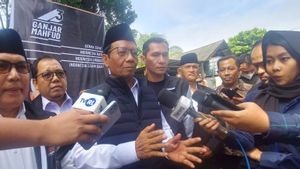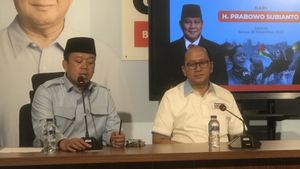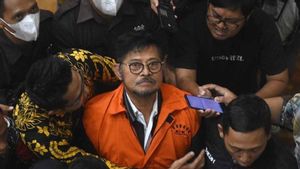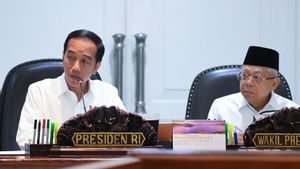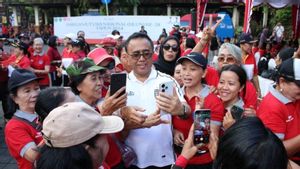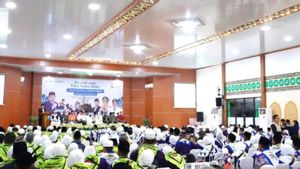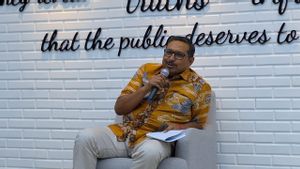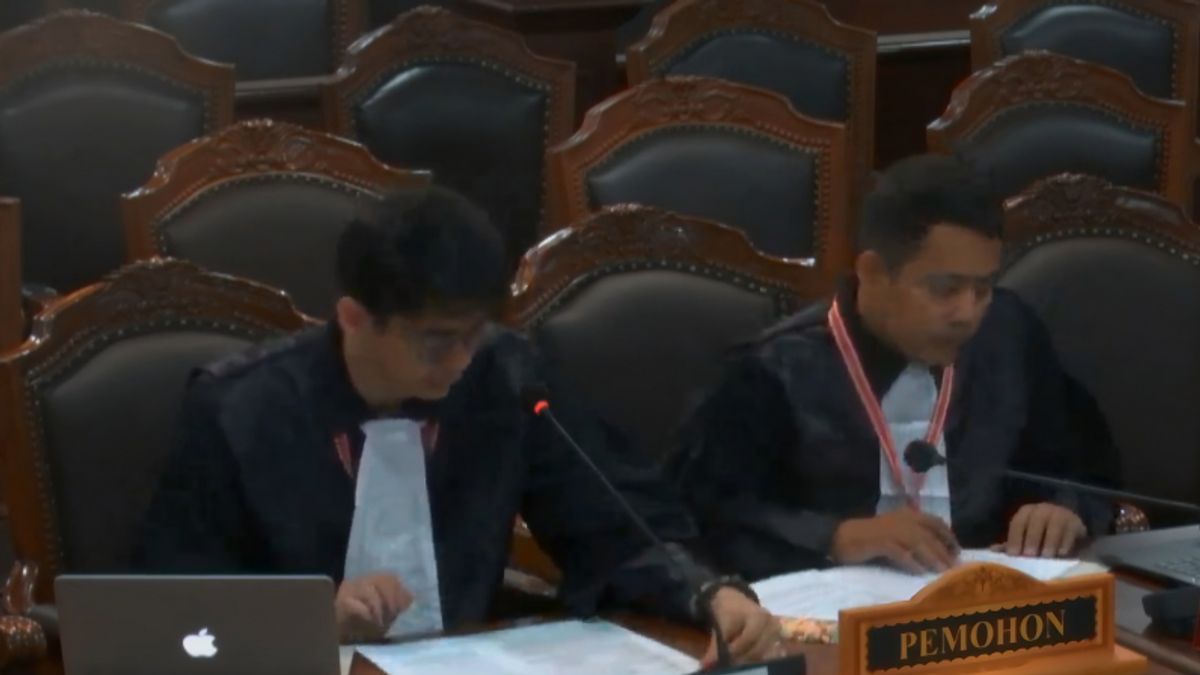
JAKARTA - The formal test of Article 169 letter q of Law Number 7 of 2017 concerning General Elections (Pemilu) as interpreted by the Constitutional Court Decision (MK) Number 90/PUU-XXI/2023 concerning the age requirements for presidential candidates (candidates) and vice presidential candidates (cawapres) will begin to take place at the Constitutional Court.
The case, which is registered with Number 145/PUU-XXI/2023, was submitted by the former Deputy Minister of Law and Human Rights Denny Indrayana and Professor of Constitutional Law at Gadjah Mada University Zainal Arifin Mochtar. The inaugural hearing with the preliminary examination agenda was held on Tuesday, November 28.
"Declare that the formation of the 90/PUU-XXI/2023 Decision which interprets Article 169 letter q of Law Number 7 of 2017 concerning Elections is contrary to the 1945 Constitution of the Republic of Indonesia and does not have binding legal force," said the attorneys of the petitioners, Muhtadin, reading out the petitum in the main petition reported by ANTARA.
In addition, Denny and Zainal also submitted a petitum in the provisions. They asked the Constitutional Court to postpone the enactment of the provisions of Article 169 letter q of the Election Law and suspend actions or policies related to this article.
"Declare to quickly examine the petitioners' petition by not asking for information from the MPR, DPR, President, DPD, or other related parties. Declare to examine, try, and decide the petitioners' petition with a composition of judges that is different from the 90/PU-XXI/2023 decision by excluding His Majesty Anwar Usman," continued Muhtadin.
The petitioners considered that Article 169 letter q of the Election Law which was interpreted in the 90/2023 Decision did not meet the formal requirements. This was argued by the applicant referring to Article 17 paragraph (5) and (6) of the Law on Judicial Power which basically states that each judge must resign from a case involving the interests of the family.
The petitioners explained that the 90/2023 decision was also tried by Anwar Usman, whose position is the uncle of the Mayor of Surakarta Gibran Rakabuming Raka, son of President Joko Widodo (Jokowi). The relationship was established because Anwar Usman married Jokowi's younger brother, Idayati.
"Evidently, the 90/2023 decision was also used as the basis by Gibran Rakabuming Raka, the nephew of His Majesty Anwar Usman, registering as a candidate for vice president of the Republic of Indonesia in the 2024 election," said the attorney for the petitioners, Muhamad Raziv Barokah.
관련 항목:
The petitioner said that Anwar Usman should resign from the case in question. "Thus, when His Excellency Anwar Usman was involved in the 90/-PUU/XXI/2023 Decision, it was clearly made the a quo decision not meet the formal requirements and became invalid," said Raziv.
On the other hand, the petitioners argued that the formal defects in Article 169 letter q of the Election Law which were interpreted in the 90/2023 Decision were also strengthened by the findings of the Constitutional Court Honorary Council (MKMK) regarding the ethical violation of the constitutional judge in adjudicating the 90/2023 Case.
"Based on these arguments, it is clear that the 90 decision contains a conflict of interest, where the former Chief Justice of the Constitutional Court at that time, His Excellency Anwar Usman, was officially decided to violate (the code of ethics, ed.) in Decision Number 2 of the MKMK 2023 and removed from his position as Chairman of the Constitutional Court," Raziv added.
In addition, it was also stated that the presence of the article in question was a form of institutional political dynasties, damaging the system of constitutional law, destroying the power of justice in upholding fair legal certainty, and eliminating guarantees, protection, certainty, and legal equality.
The English, Chinese, Japanese, Arabic, and French versions are automatically generated by the AI. So there may still be inaccuracies in translating, please always see Indonesian as our main language. (system supported by DigitalSiber.id)


